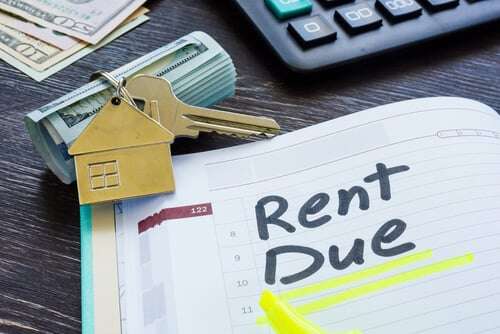
If you're a business owner who often works long into the night, it may be tempting to just move into your storefront or office space. Rather than wasting time commuting every day, you could simply retire to the back when you’re finished working for the evening. But there are zoning laws and safety concerns you should consider before making the move. Here's a closer look at whether or not it's legal to move into your commercial property.
How Real Estate Zoning Works
Real estate zoning laws were created to delegate what kind of activity is permitted in a particular area. The main categories that are most common are residential and commercial (although there are several others including industrial, historic, agricultural, etc.) Areas zoned for residential use are reserved for properties that are meant to be lived in. Areas zoned for commercial use are reserved for businesses. There are also mixed-use areas, which allow multiple zoning types.
The exact laws vary from state to state. But if your business is operating legally, that means it's located in an area zoned for commercial use. So, to legally reside in your business, you will have to find out if the area is zoned for mix-use properties. In some states, mixed-use zones are specifically designated. In others, you can apply for a mixed-use permit. So, before moving into your business, it’s important to check the local zoning laws.
Is it Safe to Move into a Commercial Property?
Another thing to consider is whether or not it’s safe to move into your commercial property. Not all businesses are created equal. If you own a bookstore or a clothing store, chances are you’ll be fine. But if you own a bar or restaurant, there may be safety concerns you should take into consideration.
Just because there's an apartment above or adjacent to your business doesn’t automatically mean that it's safe or legal to move in. It’s possible that the building was constructed before a change in zoning laws or before the property was designated for its current use. So if you are planning on moving in, you should have the unit inspected in addition to checking the local zoning laws.
Will Your Lender Allow You to Move In?
Unless you purchase the investment property with cash, you should also consult your lender before deciding to move in. Even if the local zoning laws permit resident occupancy, your bank may have different rules that will prevent you from moving into a commercial property.
Occupying the space as a resident may present additional risks that the lender is not willing to take on. Or they may have specific rules that require you to adjust the terms of your loan or commercial lease. Moving in without consulting them may constitute a break of contract - so you should be sure to notify your lender before making any moves to prevent legal action.
Is it Legal to Move into a Commercial Property?
So, while it isn’t completely illegal to move into a commercial property, it can be difficult. You'll have to check the local zoning laws, hire an inspector to ensure it's safe, and consult with any other interested parties to be sure that they're on board.
While it may seem tempting to move into your storefront or office space, it may not be the most practical or comfortable. Buildings are zoned for a particular use because they are best optimized for a certain function.
Commercial areas tend to see a lot more foot traffic and generate more noise than residential areas. They also attract more pests and produce more waste. So, you should keep that in mind when deciding whether or not you want to live in a commercial area.
But for the right person, it can be a beneficial situation. As long as check with a lawyer and get permission from any necessary parties, nothing is stopping you from moving into your commercial property to focus on your business full time.
If you're worried about the upkeep of your investment property, you should consider hiring a commercial property manager to take care of the space, rather than moving in full time.










